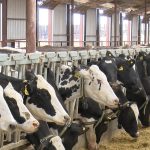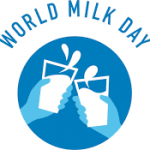
Under a new Supplier Compliance Documents heading on its website, Brownes has added a register of disputes link which opens a new page that will list any disputes suppliers may have with it.
There are also links with headings Supply Agreement 1, Supply Agreement 2 and Supply Agreement 3, but these are not activated yet, although the company has said they will be operational from next Monday.
“The site is ready, we are conducting the final reviews of all the required docs (documentation) and the site will go live June 1 as required,” Brownes managing director Tony Girgis confirmed.
“I am pleased to report we have had no disputes and none pending or expected,” Mr Girgis said.
From today milk processors, including supermarket chains Coles and Woolworths which buy fresh milk direct from farmers so are considered processors, are required by law to publish their standard-form milk supply agreements for the coming year.
Under provisions of the mandatory dairy industry code of conduct, which came into effect on January 1, published standard-form agreements must comply with the code in that they are written in plain English and the terms contained in them have a basis of good faith.
The published agreements must contain a minimum price paid for milk and quality specifications required, they must specify services the processor provides and the fees charged for those services in the first year of a contract and exactly when ownership of milk transfers from farmer to processor.
They must also include a statement of what the code defines as “pricing justification” and outline a dispute resolution process.
Processors must publish a standard-form agreement for each supply option they intend to offer farmers in the coming year.
If a processor intends offering different price structures for different supply criteria it is required to publish a sample of each.
Each standard-form agreement must be accompanied by a statement of circumstances setting out when the processor would enter into an agreement in that form.
Processors can deal exclusively with individual farmers by mutual agreement, but each processor must publish non-exclusive milk supply agreements on their website.
They must also publish reports on disputes.
Under the dairy code, processors who fail to publish standard-form supply agreements or other required documentation on their website by 4pm today face a penalty of up to $63,000 per breach.
The Australian Competition and Consumer Commission (ACCC) agriculture unit put out a press release last week to remind processors of their new obligations from Monday.
“Under the code anyone who buys milk directly from farmers (including co-operatives, retailers, brokers and other direct buyers) are defined as processors,” the ACCC pointed out.
Some sections of the code, including publishing requirements, do not apply to a processor if it meets the code’s definition of a small business.
The small business exclusions are designed to relieve boutique cheese makers and other low-volume dairy manufacturers from onerous compliance requirements given the small volumes of fresh milk they buy from farmers.
The ACCC has also prepared and published a fact sheet for dairy farmers on what the code will mean for them.
Under the code milk can only be purchased by a processor from a dairy farmer with a milk supply agreement and even with verbal supply agreements, the processor is required to provide a written record.
Farmers who sign a supply agreement have a 14-day ‘cooling off’ period in which they can change their mind.
Currently, milk supply agreements signed before January 1 do not have to comply with the code, but as they are reviewed or from January 1 next year all supply agreements must comply with the code.

























